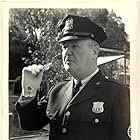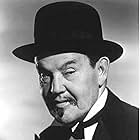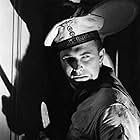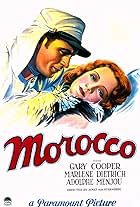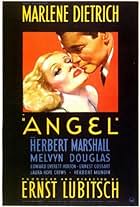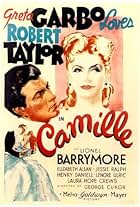VALUTAZIONE IMDb
7,1/10
5907
LA TUA VALUTAZIONE
Aggiungi una trama nella tua linguaA cabaret singer takes up with a millionaire to pay for her gravely-ill husband's operation.A cabaret singer takes up with a millionaire to pay for her gravely-ill husband's operation.A cabaret singer takes up with a millionaire to pay for her gravely-ill husband's operation.
Eric Alden
- Guard
- (non citato nei titoli originali)
William Begg
- Admirer
- (non citato nei titoli originali)
Harold Berquist
- Big Fellow
- (non citato nei titoli originali)
Glen Cavender
- Ship's Officer
- (non citato nei titoli originali)
Emile Chautard
- Chautard, French Nightclub Manager
- (non citato nei titoli originali)
Davison Clark
- Bartender Bringing Two Beers
- (non citato nei titoli originali)
Marcelle Corday
- Helen's Maid in France
- (non citato nei titoli originali)
Cecil Cunningham
- Norfolk Woman Manager
- (non citato nei titoli originali)
Trama
Lo sapevi?
- QuizCary Grant said that Josef von Sternberg directed him not really much during the filming, but taught him the most important thing. On the first day Grant came on the set, von Sternberg looked at him and said, "Your hair is parted on the wrong side." So Grant parted it on the other side and kept it that way the rest of his career.
- BlooperA check is shown on screen written to Helen Jones. This is her stage name so not sure how she will cash the check.
She will cash the check by endorsing it with her stage name. It is not illegal as long as there is no attempt to defraud.
- Citazioni
Edward 'Ned' Faraday: Dr. Pierce, I have a rather peculiar request to make. I want to sell you my body.
- Curiosità sui creditiOpening credits are shown with a background of water reflected at a swimming hole. As the credits end, it can be seen that women are swimming in the swimming hole.
- Versioni alternativeThe original German release and some television prints of this film exclude the opening scene, where Herbert Marshall encounters Marlene Dietrich and friends "skinny-dipping" in a lake.
- ConnessioniFeatured in Le Dee dell'amore (1965)
- Colonne sonoreTreue Liebe Nur du allein
(uncredited)
Music by Friedrich Silcher
Played during opening credits and as background music several times
Recensione in evidenza
.. in that typical Von Sternberg way that plays with dark, light, and shadow.
Helen (Dietrich) and her friends, who are headlining a local show, are skinny dipping in a pond in Germany. Ned (Herbert Marshall) and his friends are walking in the woods when they come upon the scene. Helen asks the men to leave, Ned says they will not unless she agrees to see him after the show. Fast forward and it's domestic Helen seen next, bathing her young son (Dickie Moore) in a small cluttered apartment. Ned, now her husband, has radium poisoning from some experiments he has been working on the past year and will die unless he can get to Dresden - they now live in America - and take the experimental cure an expensive doctor has. But it will cost 1500 dollars, and during the Great Depression it might as well be 15 million. Though Ned doesn't like it, Helen decides to go back on the stage for the first time since her marriage.
So along comes a millionaire, Nick Townsend (Cary Grant) who sees her nightclub act and hears her tale of woe., He gives Helen the money she needs to get her husband cured, but the husband thinks it's an advance from the manager of the club where Helen is working. Some reviews say Townsend is trading her sex for his money, but it's not like that, although he is very much attracted to her. And that lack of reciprocal expectations has Helen loving him as a result. And then the husband gets cured early and thus comes home unexpectedly, finding an apartment that hasn't been lived in for months. He also discovers that Helen has not been working since shortly after he sails. Complications ensue.
The script, frankly, seems rather rushed and is the stuff of a hundred melodramas made in the early 30s about misunderstood "fallen" women. Where Von Sternberg excels is with his camera work. The cinematography often speaks for the characters. The situations are not exactly classic Great Depression scenes - that was mainly Warner Brothers' stock and trade - but they aren't inconsistent given the times. The only bad thing I can say about it is that the ending seems tacked on and inconsistent given all that has come before.
Helen (Dietrich) and her friends, who are headlining a local show, are skinny dipping in a pond in Germany. Ned (Herbert Marshall) and his friends are walking in the woods when they come upon the scene. Helen asks the men to leave, Ned says they will not unless she agrees to see him after the show. Fast forward and it's domestic Helen seen next, bathing her young son (Dickie Moore) in a small cluttered apartment. Ned, now her husband, has radium poisoning from some experiments he has been working on the past year and will die unless he can get to Dresden - they now live in America - and take the experimental cure an expensive doctor has. But it will cost 1500 dollars, and during the Great Depression it might as well be 15 million. Though Ned doesn't like it, Helen decides to go back on the stage for the first time since her marriage.
So along comes a millionaire, Nick Townsend (Cary Grant) who sees her nightclub act and hears her tale of woe., He gives Helen the money she needs to get her husband cured, but the husband thinks it's an advance from the manager of the club where Helen is working. Some reviews say Townsend is trading her sex for his money, but it's not like that, although he is very much attracted to her. And that lack of reciprocal expectations has Helen loving him as a result. And then the husband gets cured early and thus comes home unexpectedly, finding an apartment that hasn't been lived in for months. He also discovers that Helen has not been working since shortly after he sails. Complications ensue.
The script, frankly, seems rather rushed and is the stuff of a hundred melodramas made in the early 30s about misunderstood "fallen" women. Where Von Sternberg excels is with his camera work. The cinematography often speaks for the characters. The situations are not exactly classic Great Depression scenes - that was mainly Warner Brothers' stock and trade - but they aren't inconsistent given the times. The only bad thing I can say about it is that the ending seems tacked on and inconsistent given all that has come before.
I più visti
Accedi per valutare e creare un elenco di titoli salvati per ottenere consigli personalizzati
- How long is Blonde Venus?Powered by Alexa
Dettagli
- Tempo di esecuzione1 ora 33 minuti
- Colore
- Proporzioni
- 1.37 : 1
Contribuisci a questa pagina
Suggerisci una modifica o aggiungi i contenuti mancanti

Divario superiore
By what name was Venere bionda (1932) officially released in India in English?
Rispondi














